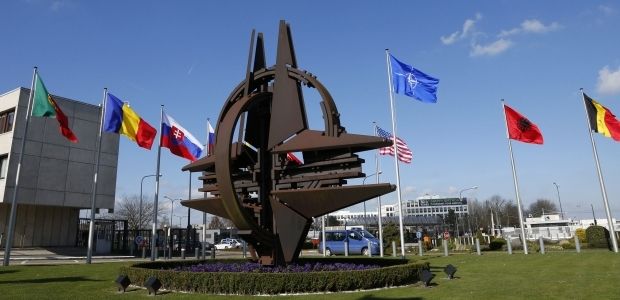
Draft proposals by NATO's military committee seen by Reuters set out how military tactics - to understand adversaries and then influence foreign audiences - could become part of a more integrated communications strategy.
Both NATO and the European Union are concerned by Russia's ability to use television and the Internet to project what they say is deliberate disinformation. The EU set up a special unit last year to counter what it considers overt propaganda.
Read alsoUkraine, Europe agree on joint, systematic anti-Russian propagandaThe 23-page document is part of a long-running debate at the North Atlantic Treaty Organization, is sensitive.
NATO, in its own parlance, is considering "strategic narratives that lead to aligned words and actions ... appropriately adapted and culturally attuned to resonate with all audiences and counter opposing narratives."
Though favored by Britain and others, the United States is wary of any strategy that could be construed as base propaganda.
Read alsoSBU denounces Lifenews report on ISIL threat, vows to investigate Kremlin involvement instead"One of the main principles of NATO is that we cannot counter propaganda with more propaganda," said NATO spokesperson Oana Lungescu.
Russia has invested in a state-of-the-art media organization with hundreds of journalists abroad intended to wean the world off what it calls aggressive Western propaganda - dubbing it, with echoes of the Cold War, Sputnik.
It is also now very active on the Internet, in social media such as Twitter.
"They can create a virtual reality that is meant to confuse and achieve certain aims," said one Western diplomat.
NATO, according to the proposals, could move more quickly to declassify images to back NATO warnings of threatening activity, as well as communicating more on social media. The strategy may be discussed at a July summit in Warsaw.
Read alsoAzov denounces Russian propaganda's fake video with "threats to the Netherlands""NATO is indicating it wants strategic communications to be better placed to detect information threats at the earliest stage," said Stephen Badsey, professor of conflict studies at the University of Wolverhampton.
NATO Secretary-General Jens Stoltenberg, told the World Economic Forum in Davos there was a "blurring line between war and peace."

